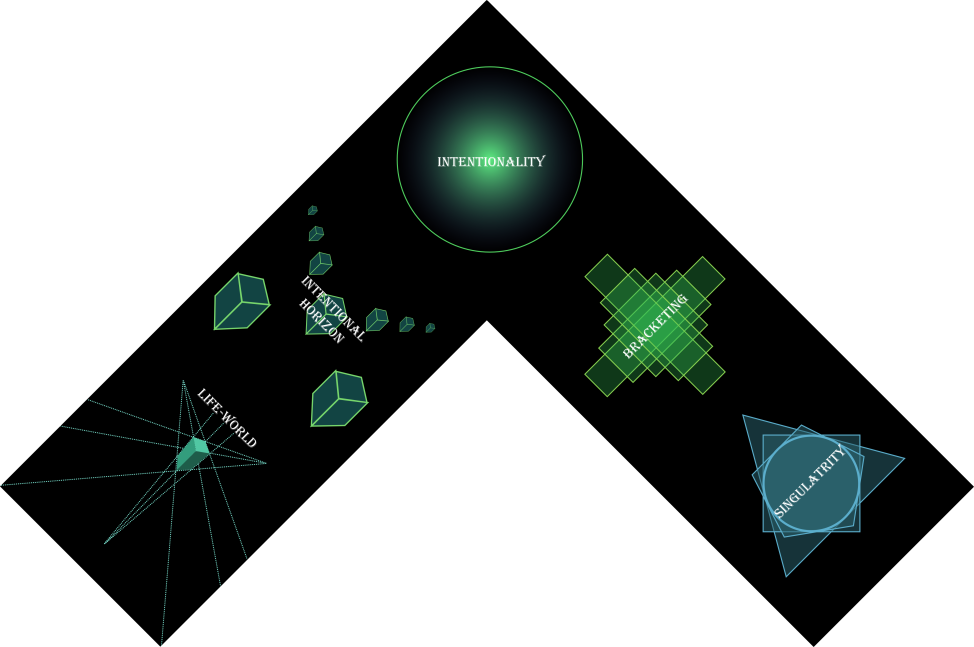Husserl, known as the father of the Phenomenology movement, sought to describe human experiences and Kantian “things in themselves” without making metaphysical assumptions. That is, he attempts to describe phenomenon in terms of how they appear in his own consciousness without conflating with the naturalistic and other scientific attitudes of his times. In contrast with scientific naturalism that use induction and general theories to organize large collections of data, phenomenology investigates particular examples of one’s own consciousness to discern what is essential to such experiences. i.e. to construct a theory of science that would ground all other sciences (much like psychology).
To systematize human experience into a theory of science, Husserl begins with language (propositional systems) as units of consciousness; the consciousness that gives voice to language are so-called “intentional acts” or “intentional experiences” that representing something as something. Such acts may be about non-existing (imagined, phantasy content) objects which includes forms of mental imagery (pictoral and kinesthetic representations). These acts differ from non-intentional units such as affects, moods, senses (pain) that are non-representational (not about anything).
The structure of consciousness could be partitioned into the act of consciousness and the phenomenon that it is being directed at. To arrive at knowledge of essences or “objects in themselves that appear in consciousness” he introduces a method called “bracketing” (Epoche) which culls away assumptions of how we normally think of objects as separate, external things. What we are left with are the invariant features that are perceived which constitute our understanding of the object. For example, my understanding of a rectangle can be bracketed to yield a four-sided shape with four right-angles. Abstract species such as rectangles of same area can be eidetically reduced to shapes of rectangles whose product of lengths and widths are the same. Such common features are said to have consistent meanings that are fulfilled by a “unified intuition” which can be read-off.
For indexical or context-sensitive experiences, Husserl characterizes them by their “singularity”, i.e. the object or set of intentional objects that are relevant in all possible worlds. The indexical experience is thought of as one of many worlds on a manifold that pertain to future courses of experiences with the indexical case as its root. These potential experiences constitute the “intentional horizon” conditioned on the indexical event. e.g. the anticipation of a moving car. Experiences on such a horizon share a common identity labeled as “determinable” X which is a higher-order (moment) belief/judgment.
For inter-subjectivity, we undergo acts of empathic experience where conscious acts are attributed to other subjects. The existence of other subjects follows from an egocentric view that others who act in ways similar to my own will perceive things in ways similar to my own; one puts himself in the other’s shoes. Such a belief allows one to ascribe intentional acts to others without inference (self-evident) and is a part of the intentional background or “lifeworld” or foundation of sense-making that is built into language and culture a priori. Lifeworld is thus a “world-horizon” of all potential experiences. e.g. prescientific qualities such as spatial shape, motion, body, and spatiotemporality. These qualities ground the more objective sciences when they employ any propositional content or appeal to intuitive acceptance (self-evident truths).


I’m liking your work. Do you have a larger version of the top diagram?
LikeLike
I’ve updated the image link with a larger version.
LikeLiked by 1 person